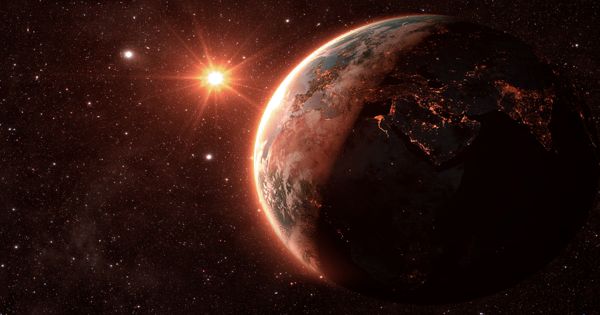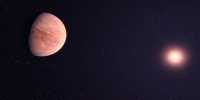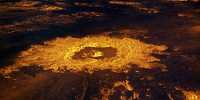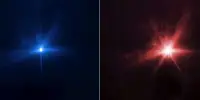According to new research, the size of rocky worlds may play a role in determining their habitability. Some planets and moons, including Mars, appear to be too small to hold onto chemicals that could be critical for the development of life.
Researchers looked studied the presence of distinct types (isotopes) of potassium in Martian meteorites, as reported in the Proceedings of the National Academy of Sciences. Potassium is a moderate “volatile,” a term used to describe a group of elements and compounds that can be lost by planetary bodies. Another, slightly more volatile, example is water.
We know that there was once water on Mars. Ancient lakes and river valleys dot the Martian terrain, though it’s unclear where they all went. Potassium is used as a water tracer in this study. The study discovered that Mars had lost a lot more potassium than Earth (which is larger and wetter), but not nearly as much as the Moon or the asteroid Vesta (much smaller and drier). As a result, the size of the world may have a role in its ability to hang on to molecules that could help life germinate, such as water. In a statement, senior author Kun Wang of Washington University remarked, “Mars’ fate was decided from the beginning.”
“The size requirements of rocky planets to retain enough water to support habitability and plate tectonics, with mass exceeding that of Mars, are likely to reach a limit.” This link between a body’s gravity and its volatile content has implications for how wet Mars was in the past.
“It seems undeniable that there was once liquid water on Mars’s surface,” Wang continued, “but quantifying how much water Mars had in total is difficult to do only through remote sensing and rover studies.” “There are numerous models for the bulk water content of Mars available. Early Mars was even wetter than Earth in some of them. That does not appear to be the case.”
Volatiles are also lost as a result of the amount of light a planetary body receives, among other things. Scientists must examine all of this and more when determining whether Mars might (or ever could) host life, as well as the likelihood that exoplanets — worlds outside our Solar System – could be habitable.
“This research highlights that there is a very small size range for planets to have just enough but not too much water to generate a habitable surface environment,” said co-author Klaus Mezger of the University of Bern’s Center for Space and Habitability. “These findings will help astronomers find habitable exoplanets in other solar systems.”














